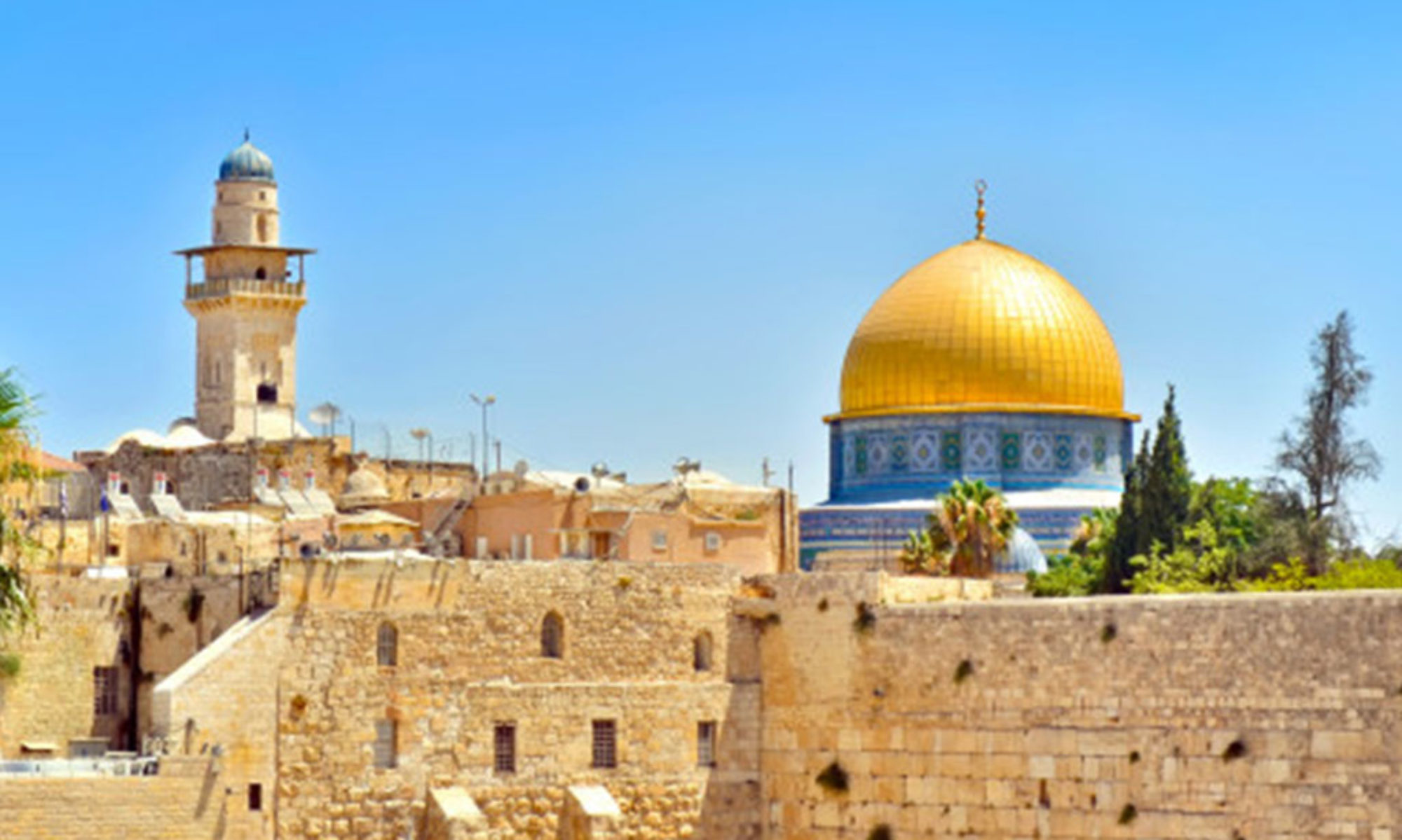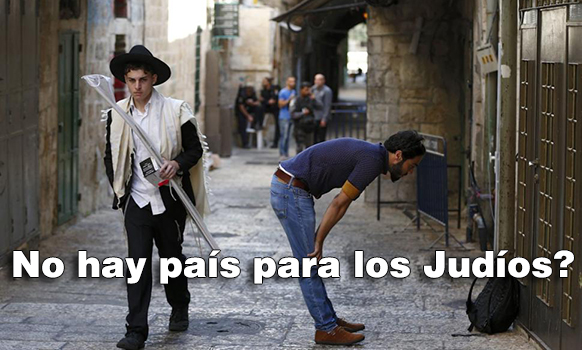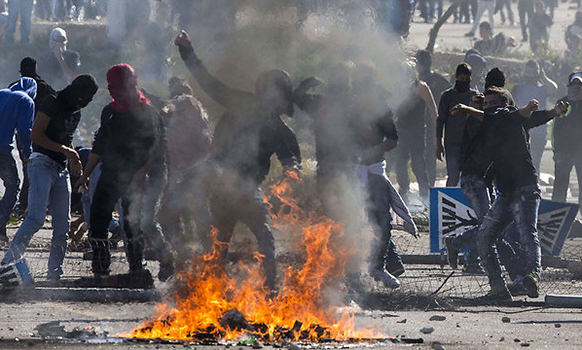POR DANIEL GORDIS New York Daily News
Domingo, 18 de octubre 2015
Tenemos una joven profesora de idiomas en la universidad Shalem en Jerusalén, donde trabajo.
Ella es musulmana religiosa que lleva un hiyab, vive en uno de los barrios árabes de Jerusalém y es estudiante graduada en la Universidad Hebrea. Ella es divertida y cálida, y un gran maestra – los estudiantes la aprecian mucho.
Tarde en la primavera pasada, cuando las cosas aquí eran tranquilas, algunos de los estudiantes mencionó al jefe de departamento que todo lo que habían hablado con ella durante el último par de años, nunca habían hablado de política.
Tenían curiosidad de conocer su pensamiento sobre el conflicto en esta región, especialmente ahora que ella estaba enseñando en una universidad abiertamente sionista, había llegado a conocer a muchos estudiantes judíos y había desarrollado relaciones cordiales con ellos.
¿Cómo alguien como ella ve las cosas aquí?
¿Cómo creía que un día sería posible resolver este conflicto?
«Entonces pregúntenle», dijo el jefe de departamento. «Siempre y cuando ustedes hablen con ella en árabe (ella trabaja para ayudar a nuestros estudiantes a dominar el idioma), se puede hablar de lo que quieran.»
Lo hicieron. Le dijeron que ya que nunca habían hablado de la «situación» (como metafóricamente llamamos aquí en Israel), estaban curiosos de saber como ella pensaba que podríamos algún día resolverlo.
«Es nuestra tierra», ella respondió convencida. Aturdidos, no estaban seguros de que habían oído correctamente. Así que esperaron. Pero eso era todo lo que tenía que decir. «Es nuestra tierra. Están aquí por ahora.»
Lo que molestó a aquellos estudiantes más que nada no era que un palestino pueda creer que los Judíos son simplemente la última oleada de cruzados en esta región, y que, al igual que los cruzados de la antigüedad, algún día serian forzados a salir. Todos sabemos que hay muchos palestinos que creen eso.
Lo que les molesta era que ella – una mujer educada, obteniendo un título de posgrado (que nunca iba a suceder en un país musulmán) en una universidad de clase mundial (sólo Israel tiene los – ninguno de los vecinos de Israel tiene una sola universidad altamente calificada) y trabajando en un colegio lleno de Judíos que la admiran y la tratan como lo harían con cualquier otro colega – todavía cree que cuando todo ha terminado, la situación se resolverá al nosotros ser lanzados fuera de aquí, una vez más.
Incluso ella, que vive una vida llena de oportunidades que nunca podría tener en un país árabe, todavía piensa en el final del día, los Judíos no son más que los colonialistas.
Y colonialistas, ella cree, no duran aquí. El británico se deshizo de los otomanos, los Judíos se deshicieron de los británicos – y un día, ella cree, los árabes se librarán de los Judíos.
Esa es una de las muchas razones por las que esta reciente ola de violencia, que consiste principalmente de puñaladas mortales llevada a cabo por los árabes israelíes (no palestinos que viven sobre la Línea Verde) y los residentes árabes de Jerusalén oriental, tiene a los israelíes tan inestables.
Sí, la realidad sobre el terreno es aterradora.
La gente está siendo apuñalada en la calle, en los autobuses, en los centros comerciales.
Aquellos a ser atacados son hombres y mujeres de edad avanzada y los niños pequeños en sus bicicletas. Nadie es inmune, y a diferencia de la última Intifada, cuando atacantes suicidas trataron de lograr un alto número de víctimas, lejos de las multitudes, ahora se siente que nada es definitivamente seguro.
Pero incluso esta no es la dimensión más debilitante de esta nueva ronda de ataques contra los Judíos. Lo más preocupante es el hecho de que esta nueva ronda de violencia ha dejado claro, una vez más, que este conflicto es simplemente nunca va a terminar.
Lo que los israelíes están llegando a comprender en virtud del hecho de que los atacantes no son los palestinos que viven en campos de refugiados, pero los árabes israelíes – que tienen acceso a servicios de salud de Israel, la educación israelí, la libertad de prensa de Israel y el derecho de reunión, protección a los gays y lesbianas y mucho más – es que esta última ronda de violencia es simplemente la más nueva batalla en la Guerra de la Independencia que Israel ha estado luchando durante 68 años.
La guerra comenzó incluso antes de que Israel fuera un estado – los árabes atacaron a Israel no cuando David Ben-Gurión declaró la independencia el 14 de mayo de 1948, pero cuando la Asamblea General de las Naciones Unidas votó – el 29 de noviembre 1947 – para crear un estado judío. Cuando la independencia formal siguió unos seis meses más tarde, las milicias árabes que atacan fueron reemplazados por los ejércitos de cinco naciones árabes – Egipto, Jordania, Siria, Líbano e incluso Irak (que se unió a la refriega a pesar de que no compartía una frontera con Israel).
Con los años, los enemigos han cambiado (Israel firmó tratados de paz con Egipto y Jordania, pero ahora existen los palestinos e Irán está a la vez la búsqueda de un arma de destrucción masiva y declarando que Israel debe ser destruido) y los métodos han cambiado (los ejércitos han sido sustituidos por el terrorismo en el país y una campaña internacional para deslegitimar a Israel en la ONU y más allá).
Pero el objetivo básico de los enemigos de Israel sigue siendo la destrucción del Estado judío.
Cada vez más, los israelíes (que, muestran las encuestas, abrumadoramente le gustaría salir de Cisjordania y vivir en paz junto a un Estado palestino que reconozca a Israel) (esto lo dice el autor pero las elecciones prueban exactamente lo contrario) temen que, si bien para nosotros este es un conflicto que puede resolverse mediante el ajuste de las fronteras y garantizar la seguridad para ambas partes, para nuestros enemigos se trata de una batalla de todo o nada en la que el único fin sería que Israel desaparezca.
Un diplomático emblemático de Israel, Abba Eban, dijo a principios de 1970 que «los árabes nunca pierden la oportunidad de perder una oportunidad.» Era, por desgracia, una observación acertada. Y sigue siendo cierta.
Al unirse a la violencia y la respuesta a la incitación al presidente palestino, Mahmoud Abbas (Abbas insiste en que él no está incitando, pero que es evidentemente falso – si no otra cosa, su afirmación absurda de que Israel está planeando cambiar el status quo en el Monte del Templo resultó suficiente para inflamar toda una región), los árabes israelíes han tontamente ponerse en el lado equivocado de la historia.
En lugar de tomar una página de Martin Luther King, Jr., quizás protestar pacíficamente en nombre de otros palestinos, una minoría violenta ha elegido para mostrar su apoyo a la causa palestina más grande atacando Judíos inocentes. Y por lo general, el liderazgo árabe-israelí ha estado en silencio.
Los Judíos israelíes han tomado nota – y las consecuencias es probable que sean de larga data.
Mientras que los israelíes se sienten vulnerables, sino que también se sienten abandonados.
Cuando el secretario de Estado, John Kerry, dijo que no iba a «señalar con el dedo desde la distancia» a quien fue responsable de la violencia, y llamó a los últimos ataques parte de un «ciclo giratoria que daña el futuro para todos», convenció a los israelíes una vez más que la actual administración estadounidense ha abandonado cualquier capacidad de distinguir el bien del mal, sólo de injusta, sabio del destructivo. América es irremediablemente irrelevante en el Oriente Medio, lo que significa que Israel esta tristemente muy solo.
Cuando los estadounidenses digan en los meses y años por venir que el proceso de paz está estancado, los israelíes esperan que van a recordar que cuando la violencia estalló de nuevo, los periódicos del mundo lo ignoraron.
Cuando Abbas dijo que Israel había asesinado a un niño de 13 años de edad palestino atacó y la prensa israelí publicó entonces una foto que muestra el niño sentado en una cama de hospital israelí, Abbas no se retrae y el mundo ignoró su mendacidad.
Cuando se le pidió al secretario de Estado norteamericano comentar por qué la nueva ronda de violencia estalló, se negó a hablar de Abbas y dijo que no iba a señalar con el dedo. Cuando los palestinos incitaron, los árabes israelíes (20% de la población de Israel) que recogió los cuchillos convenció a muchos israelíes que eran enemigos, no sus conciudadanos.
Los Israelíes esperan que la gente recuerde todo eso, pero también sabemos mejor.
Cuando todo esto sucederá, nadie puede decir. Por el momento, sin embargo, el futuro de esta región va a ser sombrío. La desesperación y la sensación de haber sido abandonados Nunca sacar lo mejor en cualquier persona, no hacen más propensos a comprometerse.
Cuando los palestinos expresan sus objeciones a la ocupación, a los puestos de control, a los malos tratos a manos de los israelíes, esas protestas caerán en oídos sordos cada vez.
¿Por qué? ¿Es porque los israelíes no quieren la paz?
¿Es porque no entendemos que nuestro futuro sería mejor si los palestinos podrían tener un Estado que funcione democrático?
¿Es porque somos ajenos a sus quejas legítimas?
No. Es simplemente que sabemos, sin duda, que para nuestros enemigos, se trata de un conflicto no se trata de fronteras, sino de nuestro derecho a estar aquí.
Sabemos que, mayoritariamente, el mundo árabe sigue apostando a echarnos de esta tierra. Así que nos quedaremos, y resistimos – lo que el mundo piensa de los pasos que tenemos que tomar – durante todo el tiempo que sea necesario.
Porque como Golda Meir lo puso hace décadas con su ingenio característico, «los israelíes tienen un arma secreta – no tenemos otro lugar a donde ir.»
Gordis es un vicepresidente senior de Koret miembro distinguido y presidente del currículo central en Shalem College y autor de «Menachem Begin: La batalla por el alma de Israel.»








